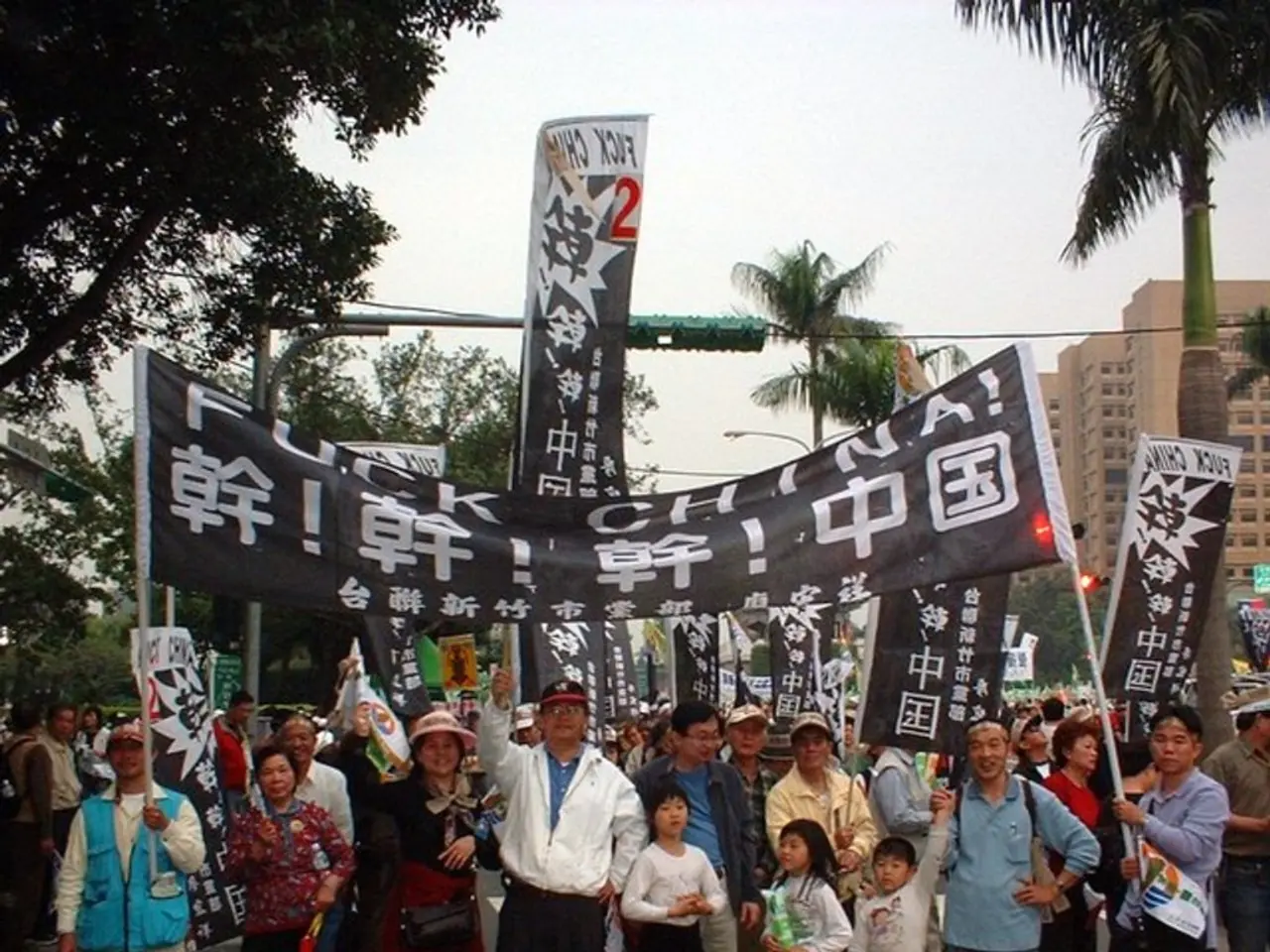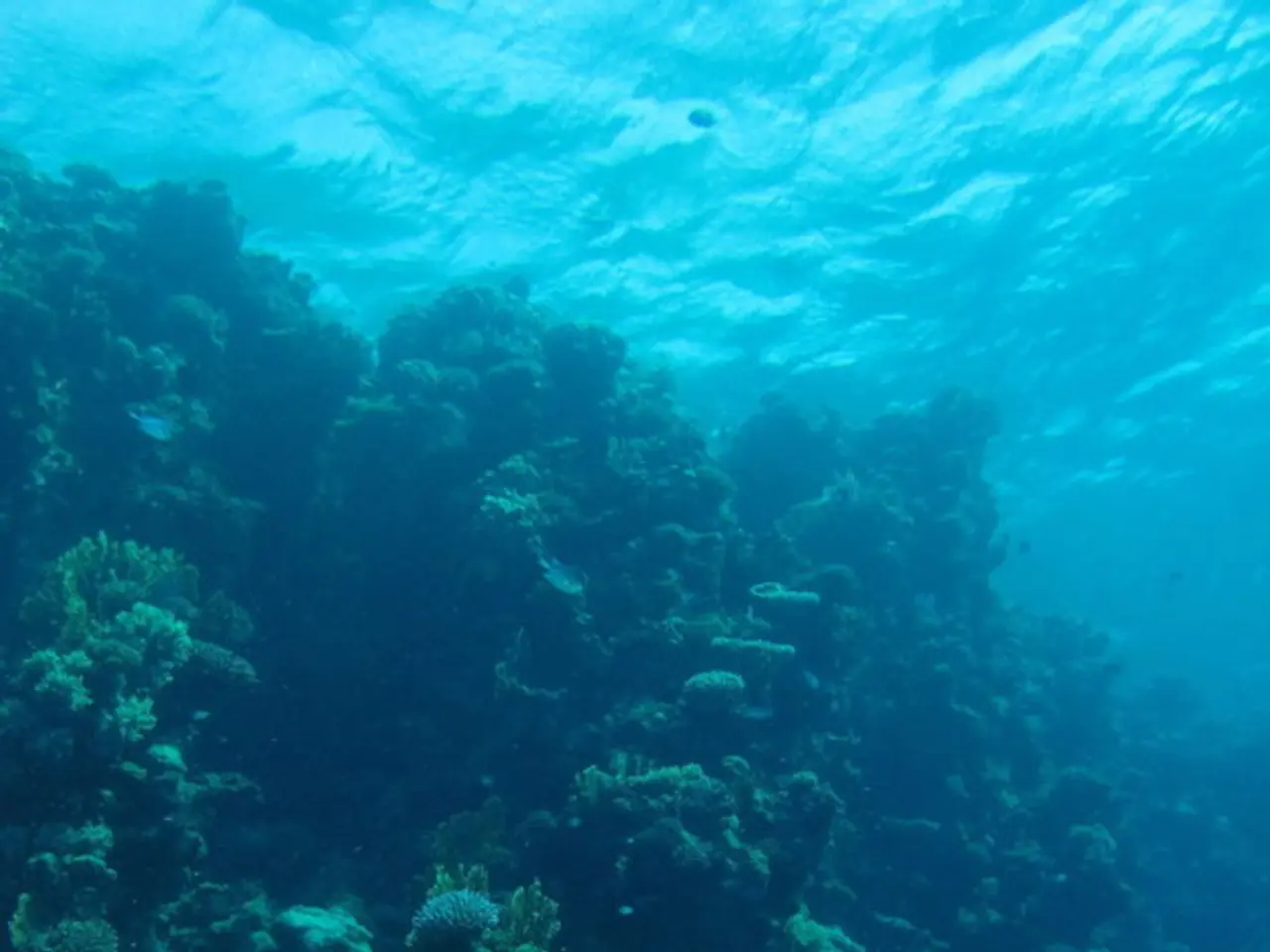Conflict Resolution Strategies in Asia through War Games
The Senkaku/Diaoyu Islands Dispute in the East China Sea has emerged as a significant point of contention between China and the United States, with members of Congress holding conflicting views on the potential for conflict escalation.
The United States identifies China as its "pacing" threat, aligning its policies, strategies, and military modernization to deter China. This stance is particularly relevant in the context of the Senkaku/Diaoyu Islands Dispute, which is strategically important due to its position on a crucial shipping lane, its proximity to massive petroleum reserves, and its role in satisfying unresolved war memories.
China's approach to maritime disputes is often shaped by a calculation to balance domestic opinion with anticipated blowback globally. However, frequent Chinese incursions and militarization near the islands have escalated tension with Japan, increasing the risk of a direct confrontation involving US forces under the US-Japan security alliance.
A peace game was conducted among fifteen members of Congress to explore attitudes towards the Sino-US security dilemma and the Senkaku/Diaoyu Islands Dispute. The findings suggest that members of Congress favor allowing China to save face in certain situations while not appearing to accommodate China's recalcitrance across the region.
Analysts agree that the costs of a Sino-US war would be high for both countries. However, the threat of US military action could horizontally escalate the localized dispute into a Sino-US war in the South China Sea or over Taiwan.
De-escalation in the context of the Senkaku/Diaoyu Islands dispute may be possible, should US officials seek third-party mediation through the United Nations and emphasize the costs of war. In this regard, public opinion, both in China and the United States, can moderate countries' policies.
Japan's ongoing military modernization complicates US policy in the East China Sea due to concerns over entrapment and escalatory behavior by Japan. However, the United States has clarified that mutual defense under the US-Japan defense treaty covers Japan's claims to the Senkaku/Diaoyu Islands.
In 2010, a Chinese fishing trawler collided with a Japan Coast Guard ship near the islands, leading to diplomatic tension and disrupted rare earth metal exports from China to Japan. Since then, there has been no significant resolution to the conflicting sovereignty claims over the islands.
Recent strategic simulations and security discourse portray the Senkaku/Diaoyu dispute as a key flashpoint where Sino-US rivalry could quickly spiral. The growing importance of multilateral deterrence frameworks involving the US, Japan, and regional allies underscores the need for joint military drills and enhanced readiness to prevent Chinese escalation.
Social media, enhanced by artificial intelligence, could potentially escalate a crisis to war. As such, diplomatic crisis management and multidimensional preparedness are crucial in managing the risks associated with the Senkaku/Diaoyu Islands Dispute.
- The United States views China as its "pacing" threat, which leads to a focus on aligning policies, strategies, and military modernization to deter China, particularly in the context of the Senkaku/Diaoyu Islands Dispute.
- Leadership in both China and the United States plays a crucial role in managing the Senkaku/Diaoyu Islands Dispute, as decisions made can impact the balance of power, national security, and international politics.
- Intelligence and military tactics are essential in understanding the potential for a localized dispute to escalate into a larger conflict, such as the Senkaku/Diaoyu Islands Dispute potentially turning into a Sino-US war in the South China Sea or over Taiwan.
- To avoid war and maintain national security, it's important to pursue de-escalation strategies in the Senkaku/Diaoyu Islands Dispute, such as seeking third-party mediation and emphasizing the costs of war.
- In the age of social media and artificial intelligence, effective crisis management and multidimensional preparedness are necessary to prevent the escalation of disputes like the Senkaku/Diaoyu Islands Dispute, as these platforms could potentially exacerbate tensions and lead to war.







